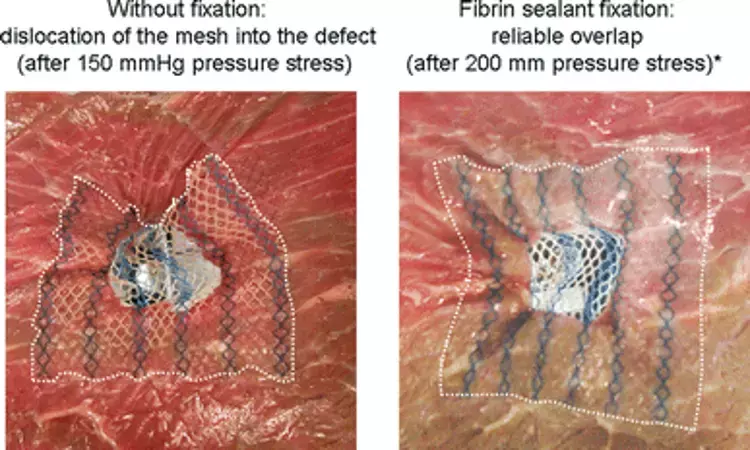- Home
- Medical news & Guidelines
- Anesthesiology
- Cardiology and CTVS
- Critical Care
- Dentistry
- Dermatology
- Diabetes and Endocrinology
- ENT
- Gastroenterology
- Medicine
- Nephrology
- Neurology
- Obstretics-Gynaecology
- Oncology
- Ophthalmology
- Orthopaedics
- Pediatrics-Neonatology
- Psychiatry
- Pulmonology
- Radiology
- Surgery
- Urology
- Laboratory Medicine
- Diet
- Nursing
- Paramedical
- Physiotherapy
- Health news
- Fact Check
- Bone Health Fact Check
- Brain Health Fact Check
- Cancer Related Fact Check
- Child Care Fact Check
- Dental and oral health fact check
- Diabetes and metabolic health fact check
- Diet and Nutrition Fact Check
- Eye and ENT Care Fact Check
- Fitness fact check
- Gut health fact check
- Heart health fact check
- Kidney health fact check
- Medical education fact check
- Men's health fact check
- Respiratory fact check
- Skin and hair care fact check
- Vaccine and Immunization fact check
- Women's health fact check
- AYUSH
- State News
- Andaman and Nicobar Islands
- Andhra Pradesh
- Arunachal Pradesh
- Assam
- Bihar
- Chandigarh
- Chattisgarh
- Dadra and Nagar Haveli
- Daman and Diu
- Delhi
- Goa
- Gujarat
- Haryana
- Himachal Pradesh
- Jammu & Kashmir
- Jharkhand
- Karnataka
- Kerala
- Ladakh
- Lakshadweep
- Madhya Pradesh
- Maharashtra
- Manipur
- Meghalaya
- Mizoram
- Nagaland
- Odisha
- Puducherry
- Punjab
- Rajasthan
- Sikkim
- Tamil Nadu
- Telangana
- Tripura
- Uttar Pradesh
- Uttrakhand
- West Bengal
- Medical Education
- Industry
Positive-Pressure Exhaust Technique Improves Mesh Fixation in TAPP Hernia Repair: Study

Researchers have found in a study on laparoscopic transabdominal preperitoneal (TAPP) hernia repair that the pneumoperitoneum positive-pressure exhaust technique enhances mesh fixation by eliminating dead space and improving tissue apposition.
This simple, cost-effective approach may lower recurrence risk and offers benefits such as real-time mesh positioning assessment, multimodal fixation without extra devices, and simplified dead space management. Further large-scale studies are needed to validate its long-term efficacy.
A study was done to investigate the effects of the pneumoperitoneum positive-pressure exhaust technique on mesh fixation and postoperative recovery in laparoscopic transabdominal preperitoneal prosthetic (TAPP) hernia repair.
A retrospective cohort analysis was conducted on 655 patients who underwent TAPP between January 2019 and December 2023. Patients were divided into a direct suture group (n=304) and a positive-pressure exhaust group (n=351) on the basis of preperitoneal space management. In the exhaust group, a 20G needle or drainage tube was placed percutaneously before peritoneal closure. After suturing, 12 mmHg pneumoperitoneum pressure was maintained to evacuate residual gas from the preperitoneal space through the externalized needle/tube. The primary outcomes included postoperative complications (bleeding, mesh infection, seroma, reoperation) and hospitalization duration.
Results: Baseline characteristics were not significantly different (P>0.05). Although not statistically significant, there were clinically meaningful differences between the groups; the exhaust group had lower seroma (11.97% vs. 16.78%, P=0.079) and mesh infection (0.28% vs. 1.32%, P=0.189) incidence rates than the direct suture group did. The exhaust group had a significantly shorter hospital stay than the direct suture group (median 7 vs. 7 days, P=0.013) and had a 0% recurrence rate at the 1-year follow-up (vs. 1.32% for the direct suture group).
The positive-pressure exhaust technique facilitates mesh fixation by eliminating dead space through improved tissue apposition. This simple, cost-effective approach may reduce the risk of recurrence, although larger prospective studies are needed to validate its long-term efficacy.
Reference:
He, W., Chen, B. Efficacy of intraperitoneal positive pressure gas expulsion in laparoscopic transabdominal preperitoneal hernioplasty: a retrospective cohort study. BMC Surg 25, 231 (2025). https://doi.org/10.1186/s12893-025-02965-y
Dr. Shravani Dali has completed her BDS from Pravara institute of medical sciences, loni. Following which she extensively worked in the healthcare sector for 2+ years. She has been actively involved in writing blogs in field of health and wellness. Currently she is pursuing her Masters of public health-health administration from Tata institute of social sciences. She can be contacted at editorial@medicaldialogues.in.
Dr Kamal Kant Kohli-MBBS, DTCD- a chest specialist with more than 30 years of practice and a flair for writing clinical articles, Dr Kamal Kant Kohli joined Medical Dialogues as a Chief Editor of Medical News. Besides writing articles, as an editor, he proofreads and verifies all the medical content published on Medical Dialogues including those coming from journals, studies,medical conferences,guidelines etc. Email: drkohli@medicaldialogues.in. Contact no. 011-43720751


